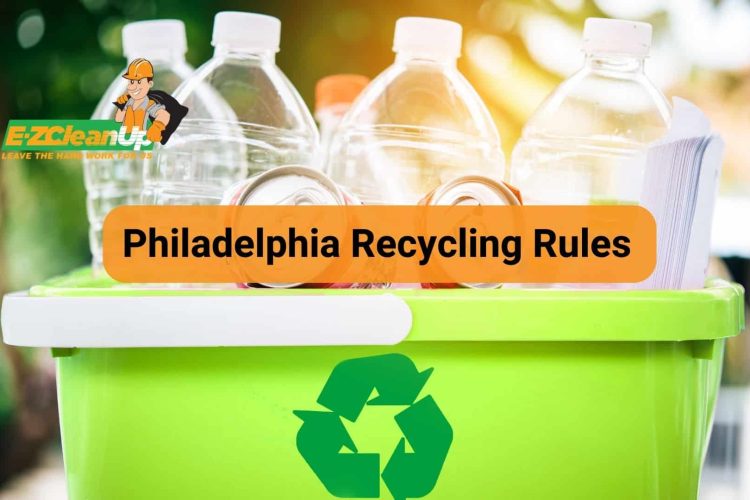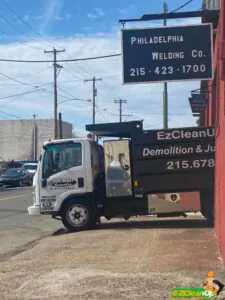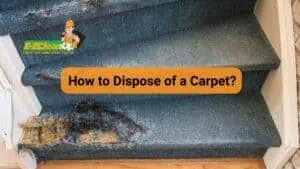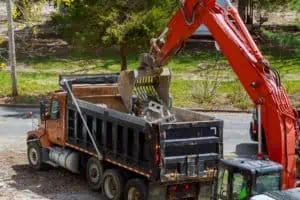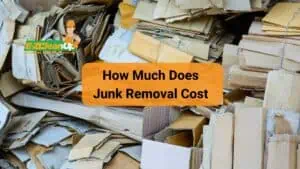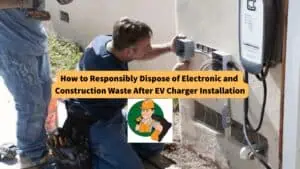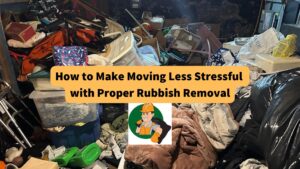The city of Philadelphia requires the separation of recyclables from trash. Key items eligible for recycling include paper, cardboard, certain plastics, metals, and glass. Special handling is needed for electronics and hazardous materials. Non-compliance may lead to fines.
Read the full article to know more about the important Philadelphia recycling rules.
Overview of Philadelphia’s Recycling Policies
Philadelphia has a comprehensive recycling program to reduce litter, save resources, and keep the city clean. The city’s program operates on an enormous scale. It emphasizes the importance of recycling the right things in the right way.
Proper recycling not only benefits the environment but also helps in maintaining community health. Recycling in Philadelphia is mandatory, and failure to do so may result in fines.
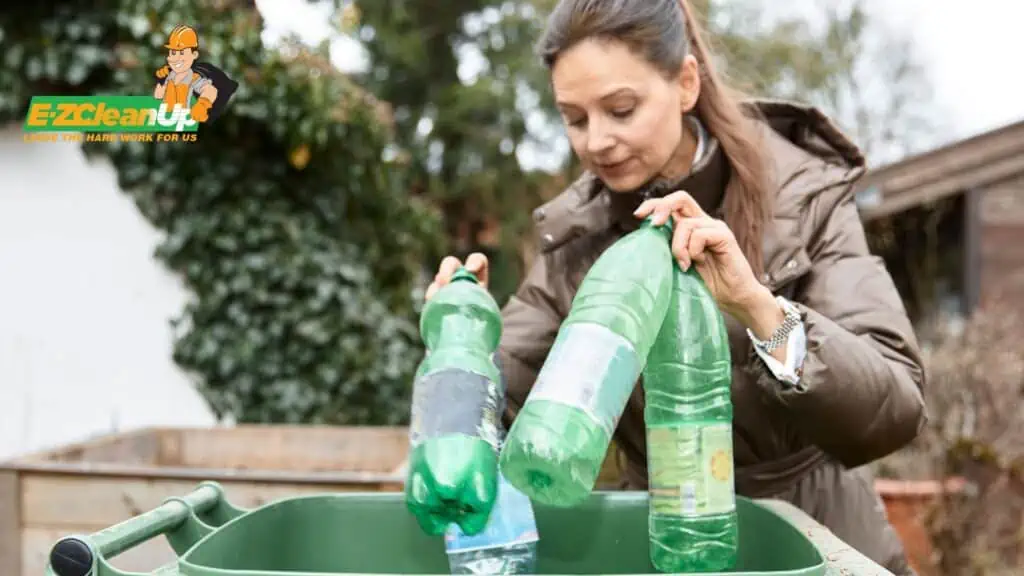
Importance of Recycling in Urban Environments
Recycling plays a crucial role in urban environments like Philadelphia. It’s not only environmentally friendly but also essential for reducing landfill waste.
For instance, recycling paper products is more energy-efficient, requiring 26% less energy compared to producing new paper products. This practice also minimizes the need to cut down more trees. Efficient recycling of materials like paper and plastics contributes significantly to environmental sustainability.
Current State of Recycling in Philadelphia
Philadelphia has made significant improvements in its recycling processes. After a challenging period during the pandemic, where recycling and waste were often mixed due to staff shortages, the city has now regained control over its recycling collection.
The costs for recycling have also decreased, and there’s a growing market for recycled plastics and cardboard, driven by the rise in online shopping and new packaging laws in various states. The city also focuses on improving the cleanliness of recycling loads to meet the rising demand for recyclable materials.
Moreover, Philadelphia is committed to achieving its “Zero Waste” goal by 2035, which includes efforts like the Philacycle program, combining recycling with community engagement and education.
Eligible Materials for Recycling
The guidelines for recycling provided by the City of Philadelphia are clear and comprehensive, covering a wide range of household items, special categories, and non-recyclable materials.
Common Household Items That Can Be Recycled
In Philadelphia, the household items eligible for recycling include the following:
- Junk mail
- Envelopes
- Writing paper
- Scrap paper
- Paper bags
- Phone books
- Paperback books (excluding hardbacks)
- Greeting cards
- Non-metallic gift wrap
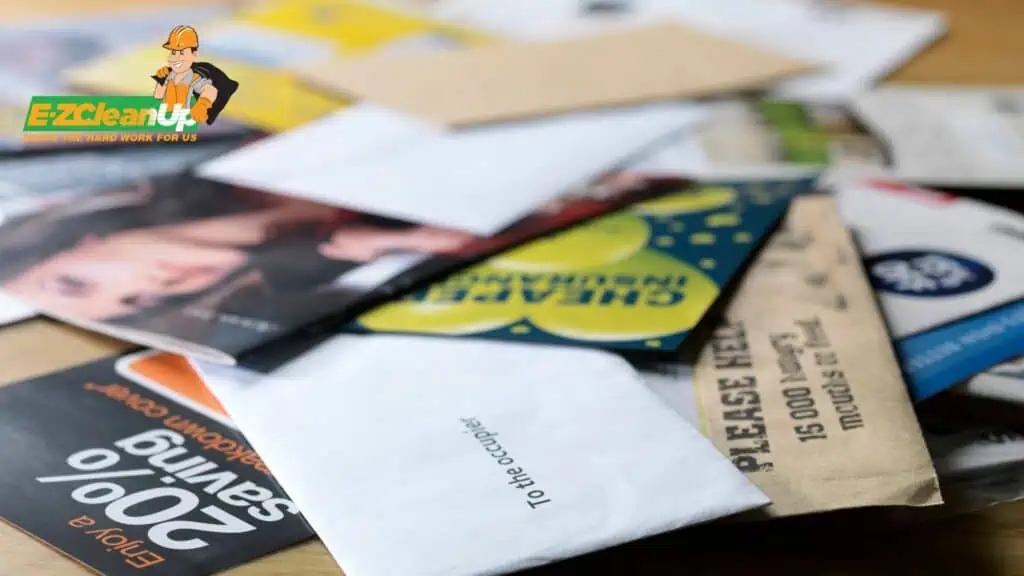
For plastics, items labeled #1, #2, and #5 are recyclable, such as:
- Food and beverage containers
- Hard plastic takeout containers
- Detergent and shampoo bottles
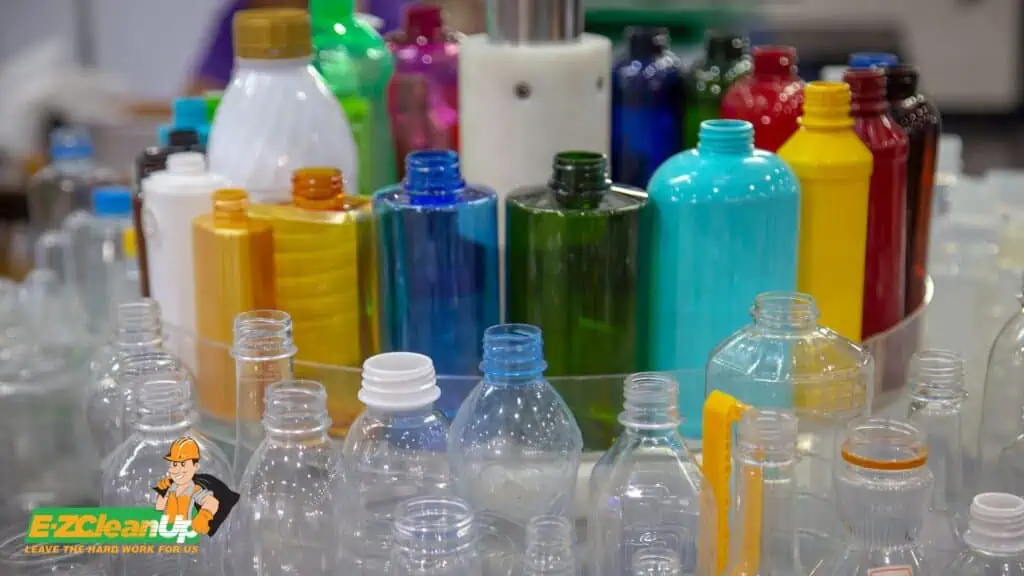
The following metals are also accepted:
- Aluminum
- Steel
- Tin cans
- Empty paint and aerosol cans
- Aluminum or steel baking trays/dishes
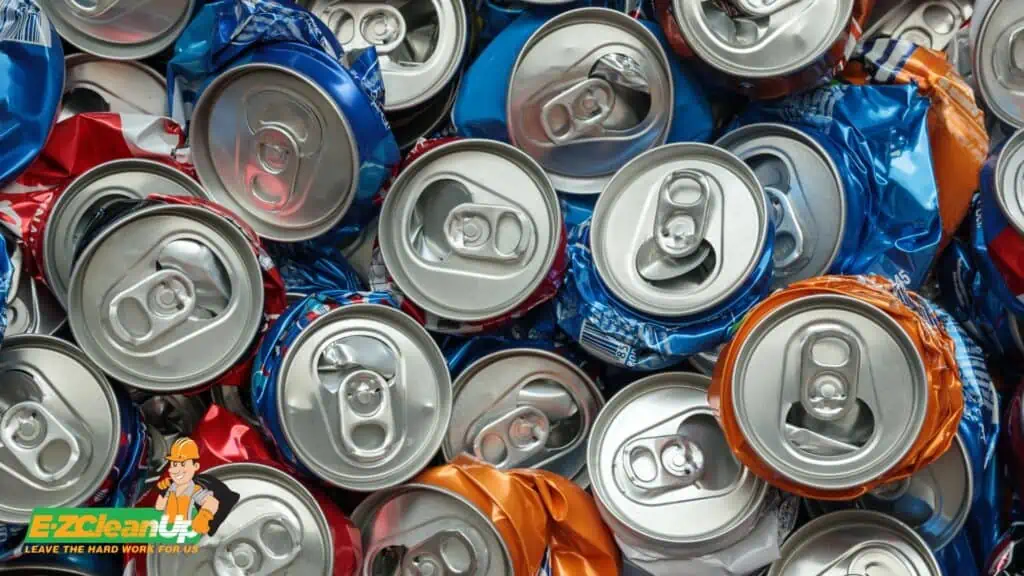
The following are accepted when emptied, rinsed, and dried:
- Glass bottles
- Jars
- Cartons for milk, juice, wine, and soup
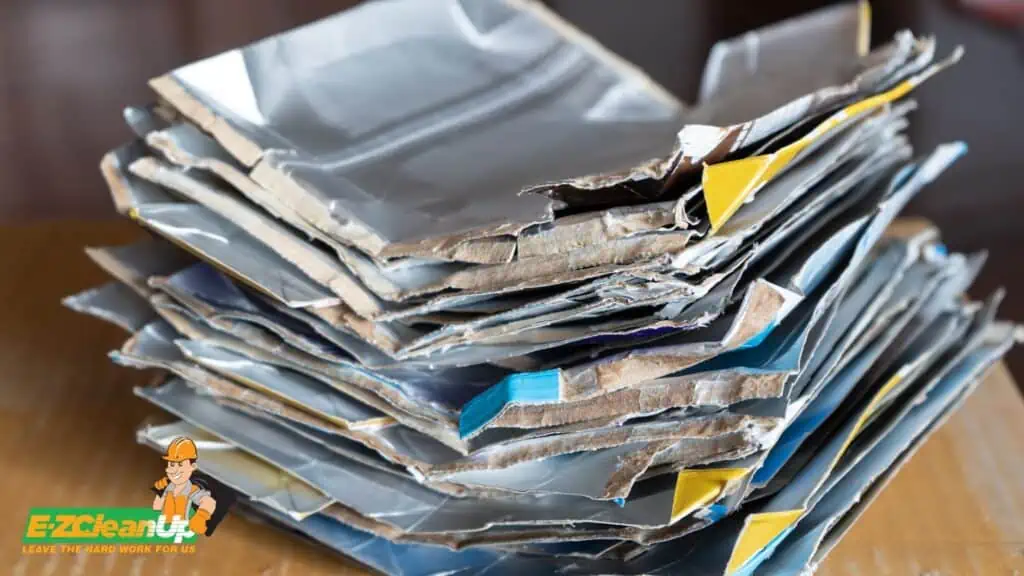
These cardboard materials are also part of the recycling program in Philly:
- Shipping boxes
- Clean pizza boxes
- Paper towel rolls
- Egg cartons
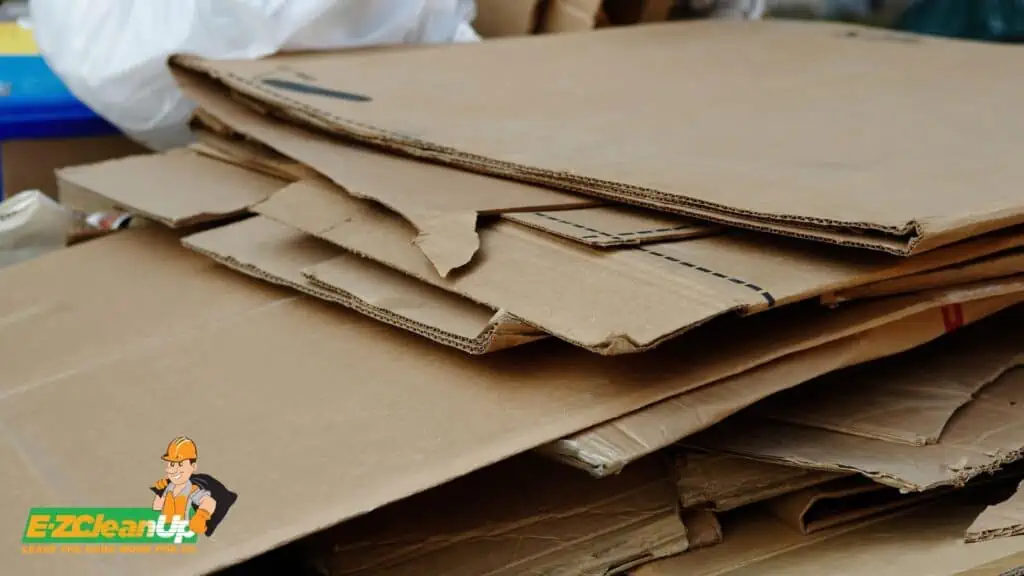
Special Categories: Electronics and Hazardous Materials
Certain items require special handling due to their nature. Electronics, including computers and televisions, should be taken to a sanitation convenience center. Household hazardous waste like paints, motor oil, antifreeze, and bulk items such as stoves and air conditioners also have designated disposal methods and locations.
For instance, hazardous waste can be taken to specific disposal sites or collection events, while bulk items may be handled by private haulers or taken to sanitation convenience centers. This approach ensures safe and proper disposal while keeping these materials out of regular recycling streams.
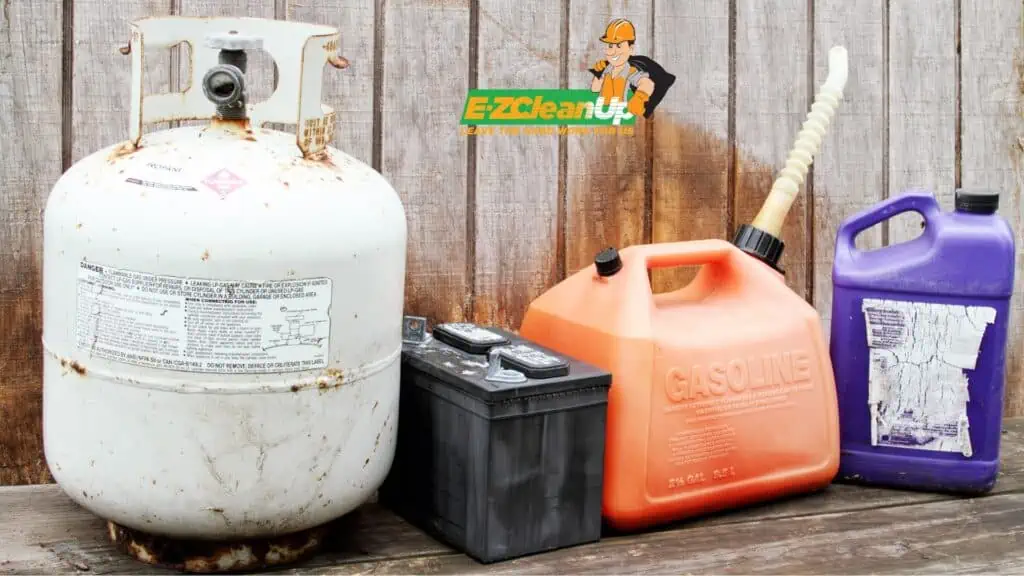
Non-Recyclable Materials and Alternatives
It’s crucial to recognize what should not be placed in recycling bins. Non-recyclable items include the following:
- Plastic bags
- Food-soiled materials
- Disposable plates and cups
- Greasy paper
- Styrofoam™
- Batteries
- Electronics
- Needles and syringes
- Clothing hangers
- Tissues
- Shredded paper
The city emphasizes the importance of keeping these materials out of the recycling bins to prevent contamination and damage to recycling equipment. For materials like plastic bags, alternatives include reusing them or disposing of them with regular trash. Residents need to understand these distinctions to ensure the effectiveness of the recycling program and the safety of recycling facility workers.
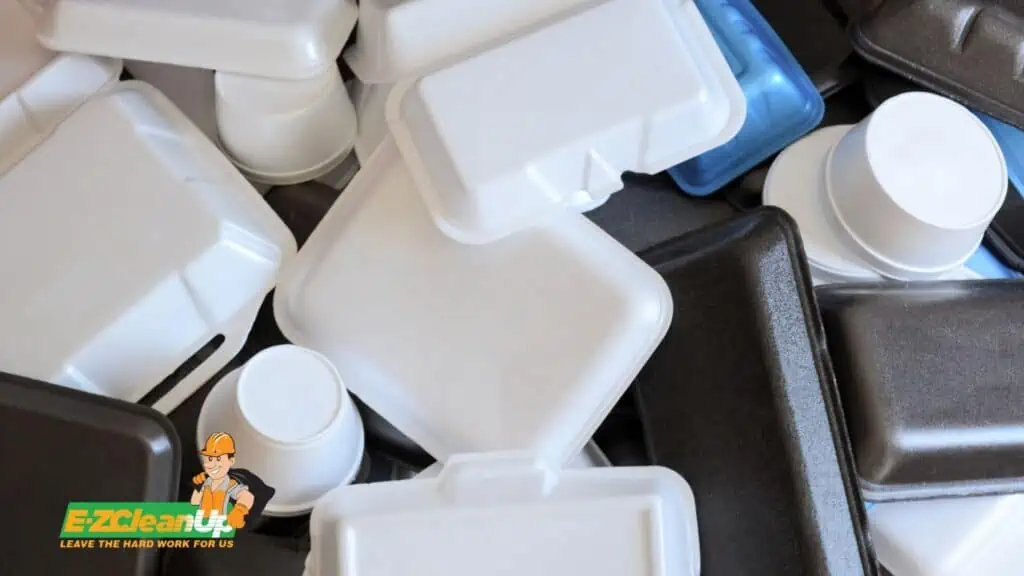
Recycling Collection and Drop-off Points
Philly has a well-organized system for trash and recycling collection. Residents can easily find their regular trash and recycling collection days by entering their addresses on the City of Philadelphia’s official website. The schedule is subject to changes due to holidays, weather, or roadwork.
After a City-observed holiday, trash and recycling collection are delayed by one day for the rest of the week. Important holidays affecting the schedule include New Year’s Day, Martin Luther King, Jr. Day, Good Friday, Memorial Day, Juneteenth, Independence Day, Labor Day, Indigenous Peoples’ Day & Columbus Day, Veterans Day, Thanksgiving, and Christmas Day.
Public Recycling Centers in Philadelphia
Philadelphia offers several sanitation convenience centers where residents can drop off trash or recycling. These centers accept various items, including electronics and bulk items, which aren’t collected curbside. These centers are a critical part of the city’s recycling infrastructure. They provide a place for residents to dispose of items that require special handling.
When preparing recyclables for collection, residents should ensure that items are emptied, rinsed, and dried. This applies to all recyclable materials, including plastics, metals, glass, and cartons. Cardboards should be flattened and free of grease and food.
It’s important to note that plastic bags, food-soiled materials, and certain other items should be kept out of recycling bins to avoid contamination. Additionally, recyclables must be put out in a bin—not in a bag or cardboard box. This helps to ensure that the recycling process is efficient and effective.
The recycling program in Philadelphia is designed to be accessible and efficient and help promote sustainability in the city. By following the set guidelines and utilizing the available resources, residents can contribute significantly to the city’s recycling efforts.
Philadelphia’s Recycling Regulations and Fines
Separating trash and recyclables for city collection is mandatory. Residents and property owners must ensure that refuse set out for collection is divided into trash and recyclables. The rules apply to private properties with six units or fewer and properties with retail stores and professional offices as long as they meet other regulatory requirements.
Certain items like non-rechargeable batteries, furniture, wood, and needles need special handling before disposal. Electronics, hazardous waste, bulk items, tires, and certain other materials are not accepted for curbside collection and require specific disposal methods.
Penalties for Non-Compliance
Violators who fail to properly separate their trash and recyclables are subject to penalties under the Philadelphia code and sanitation regulations. The Streets & Walkways Education and Enforcement Program (SWEEP) educates citizens about their responsibilities and enforces the rules through warnings and fines.
Fines for recycling violations can range from $50 to $100 or more, depending on the nature of the violation. Recycling containers must be sturdy plastic or metal, hold 32 gallons or less, and be clearly marked with the word “Recycling.” Using paper bags, cardboard boxes, or plastic bags as recycling containers is prohibited.
How to Stay Informed About Recycling Rules
Staying informed about recycling rules in Philadelphia is crucial for compliance. The City of Philadelphia provides up-to-date information on its official website, including details on how to recycle, what belongs in the bin, and how to get a recycling bin.
Residents can also learn about special items that require different recycling methods. For the most current information, residents should regularly check the city’s website and follow updates from official city channels.
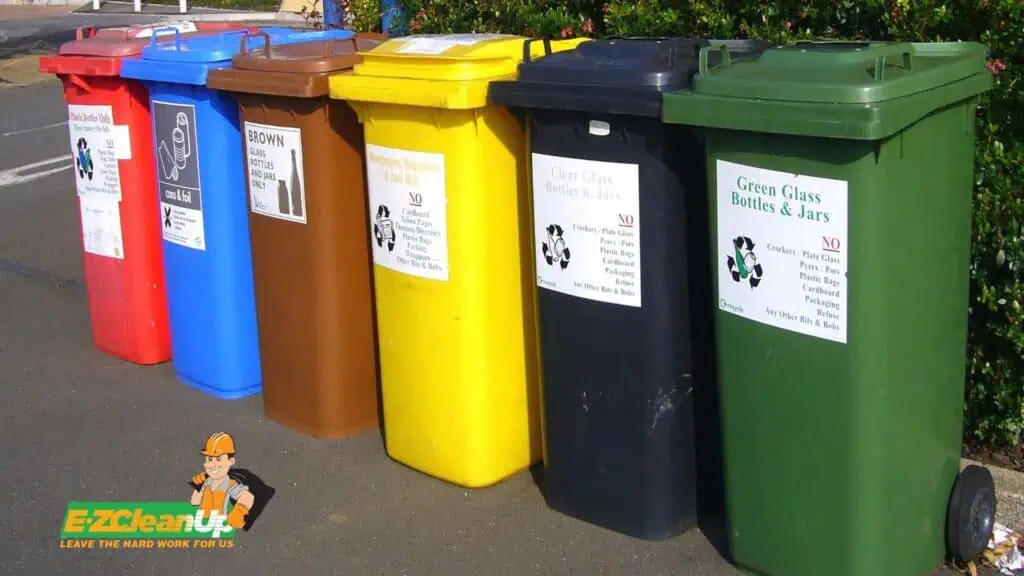
Environmental Benefits of Proper Recycling Practices
Proper recycling in Philadelphia (and any place not only in the US but the rest of the world) brings significant environmental benefits. Recycling right saves valuable resources, reduces litter and pollution, and contributes to a cleaner and healthier community.
It helps conserve raw materials and energy, minimizes landfill waste, and reduces the city’s carbon footprint. By ensuring that recyclables are correctly sorted and processed, the city can prevent contamination, which ruins materials, damages recycling equipment, and endangers workers.
Economic Implications for the Community
Economically, the recycling industry can create jobs, and the sale of recyclables can generate revenue. However, Philadelphia’s recycling system faces challenges, such as contamination and the lack of a market for certain materials.
This situation often leads to inefficiencies, where recyclable materials are not fully utilized or properly processed, potentially reducing the economic benefits of recycling. Addressing these challenges can lead to a stronger recycling market, potentially saving significant amounts of the city’s budget allocated for waste management.
Long-term Sustainability Goals of Philadelphia
The city aims to improve the quality of life in all neighborhoods through various sustainability initiatives. The Office of Sustainability in Philadelphia works towards environmental justice, which reduces the city’s carbon emissions and prepares for a hotter and wetter future.
The city’s long-term sustainability goals include reducing its carbon footprint, increasing the use of renewable energy sources, and developing climate resilience strategies. These goals are aligned with the broader objective of achieving a sustainable, efficient, and green Philadelphia for all.
Philadelphia’s approach to recycling is integrally linked to its broader sustainability goals. By focusing on effective recycling practices, the city not only addresses immediate environmental and economic concerns but also paves the way for a more sustainable future.
Common Challenges Faced in Urban Recycling
Philly’s recycling system has encountered several challenges. These include high worker absence rates and increased residential trash and recycling due to people staying at home, which was especially evident during the pandemic. This situation led to delays in trash and recycling collections and even cases where recyclables and trash were combined.
The lack of trust in the city’s ability to manage recycling efficiently and transparently among residents is another significant issue. Additionally, the city has struggled with its zero waste goals and effective intra-departmental collaboration to tackle litter and dumping issues.
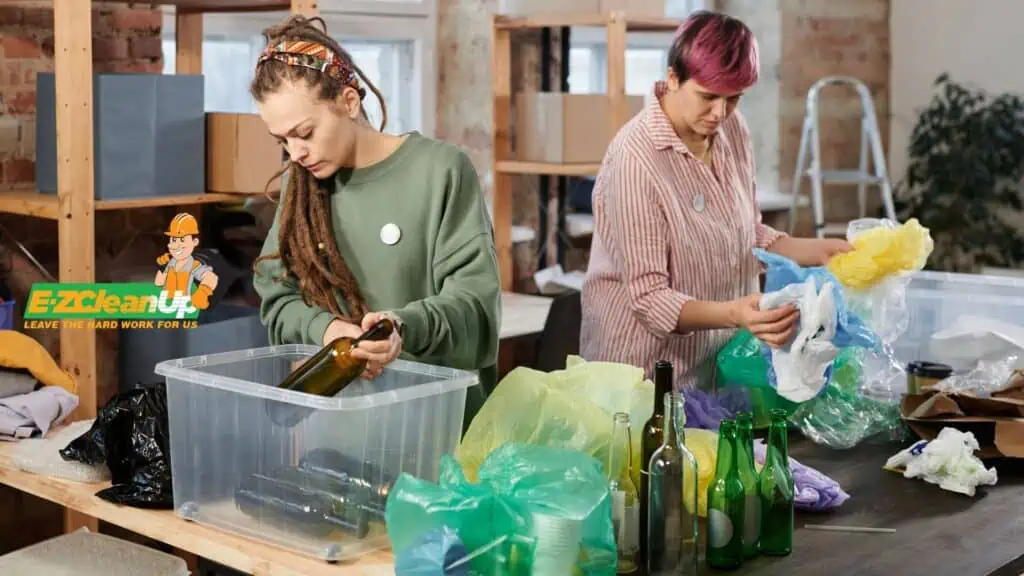
Innovative Solutions and Community Initiatives
Addressing these challenges requires innovative solutions and community initiatives. One approach is to improve waste and recycling contracting, especially as the city’s recycling contract nears expiration. Exploring alternatives to the current waste management operators and possibly adding composting services are potential strategies.
Additionally, the city could benefit from reinstating functions similar to the previously dismantled Zero Waste and Litter Cabinet to elevate waste diversion as a priority and make real progress in this area.
How Individuals and Businesses Can Contribute
Individuals and businesses can start by ensuring proper separation and disposal of recyclables and waste. Raising awareness, participating in community programs aimed at reducing waste, and promoting recycling are other ways to contribute.
Businesses, in particular, can adopt sustainable practices and support policies that encourage waste reduction and effective recycling. By working collaboratively, the community can help Philadelphia achieve its goal of becoming a “zero waste” city, as envisioned by city leaders.
Overall, while Philadelphia faces significant challenges in recycling, there are opportunities for improvement through collaborative efforts, innovative solutions, and active community participation. Addressing these challenges is essential for the city to achieve its sustainability goals and ensure a healthier environment for all residents.
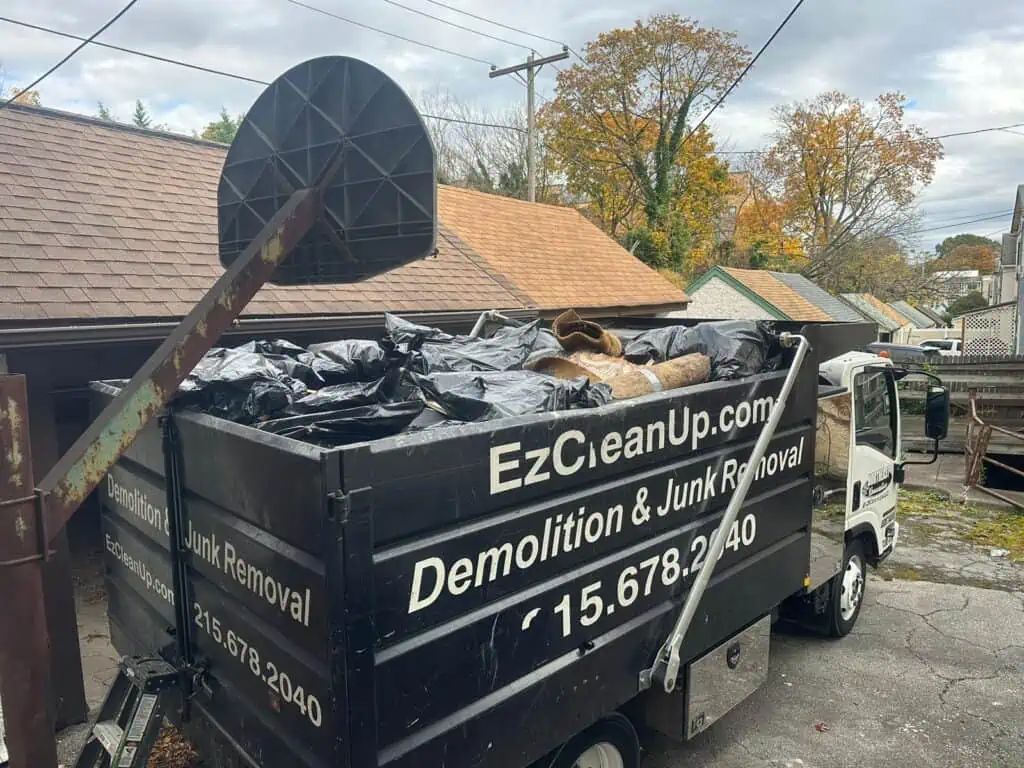
Making Philadelphia Greener with EZ CleanUp
Adhering to Philadelphia’s recycling rules not only supports the city’s environmental goals but also highlights the need for responsible junk disposal. EZ CleanUp ensures it stands out in this goal. We’re a Philly-based junk removal service that’s dedicated to eco-friendly practices.
At EZ CleanUp, we believe in making a positive environmental impact. Our commitment to eco-friendly junk disposal means prioritizing recycling and donating whenever possible. Our expertise in managing various kinds of waste, including old furniture, electronics, and general debris, ensures your junk is dealt with responsibly.
Choose EZ CleanUp for a cleaner, more organized environment that aligns with Philadelphia’s eco-friendly vision. Contact us today for a free on-site estimate and take the first step towards responsible and efficient junk removal.

